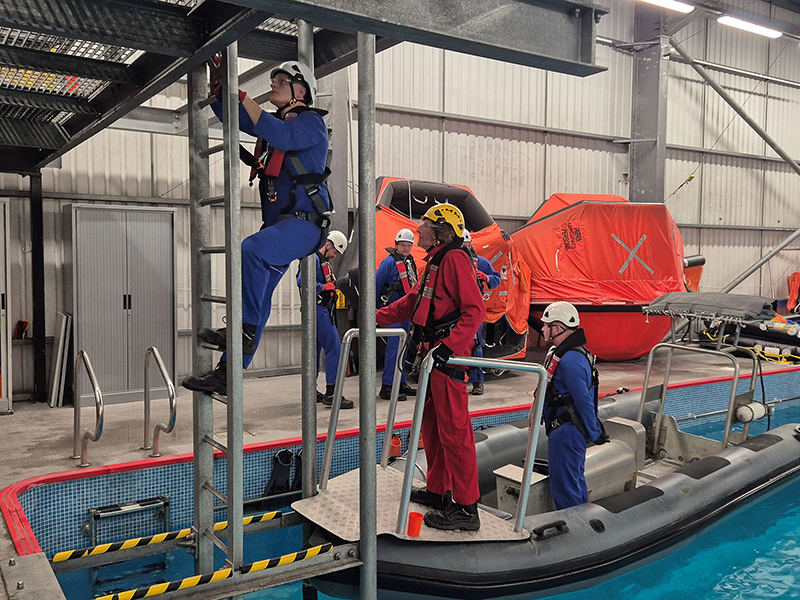
A pilot cross-skill programme has been taking place in Aberdeen and Grangemouth in a bid to help deliver an integrated technician workforce for a just energy transition between oil and gas to wind.
Eight learners completed the six-week programme at Grangemouth last week, with a further seven due to complete this week in Aberdeen.
The programme developed by the Engineering Construction Industry Training Board (ECITB), in partnership with Global Wind Organisation (GWO) and the Offshore Renewable Energy (ORE) Catapult.
It recognised prior learning and ongoing competence of qualified oil and gas technicians and delivered a task-based programme of technical activity across electrical, mechanical and instrument pathways as well as wind-specific GWO training and on-site turbine familiarisation.
The 15 learners include employees from Wood, Petrofac, Semco Maritime and Ponticelli, as well as ECITB-supported individuals and five former mechanical technicians from Grangemouth Oil Refinery. Many of the learners will move to roles on wind assets. Interviews are taking place with the refinery workers and industry employers, with one already securing a role with Wood.
Andrew Hockey, CEO of the ECITB, said, “There is a clear case to support the industry’s supply chain to cross-skill existing workers to service both the operations and maintenance of late-life oil and gas assets whilst also being deployed to wind. It is vital we maintain the appropriate standards of technical skills and behavioural safety across the engineering construction sectors and the two-way transition of skilled workers between sectors will help improve safety, workforce mobility and the resilience of the industry.”
Current UK-installed wind capacity needs to double for both onshore and offshore wind if the UK Government targets are to be met by 2030. The recent Skills Intelligence report released by RenewableUK and OWIC identifies wind turbine technicians as the most in-demand occupation with an average shortfall of over 11,000 technicians annually over the next five years. Regional analysis also shows the highest workforce concentrations will be in coastal and Scottish regions.
The ECITB is currently reviewing feedback from the learners, training providers and employers and aims to have a final programme available through its technical training providers in the autumn.
The ECITB funded the training for all workers and received additional support for the five workers from Grangemouth refinery, which were co-funded by the Scottish Government.
Training was delivered at Forth Valley and North East Scotland Colleges and GWO/ECITB-approved training provider, RelyOn. Learners also completed elements of the programme inside the nacelle of a wind turbine at ORE Catapult’s Levenmouth demonstration turbine.
Jakob Lau Holst, CEO of GWO, added, “The renewable energy sector relies on industry standards bodies to work together so we can help build a skilled workforce quickly. GWO training providers are now playing a key role in providing recognition for prior learning and this pilot is a perfect example. When applied to industry-recognised schemes such as ECITB’s Connected Competence, GWO REcognition scheme can reduce training time for workers, and help them focus on the domain specific knowledge they will need to apply their skills in a wind turbine environment.”








